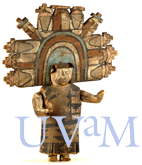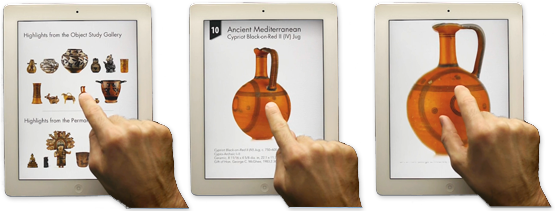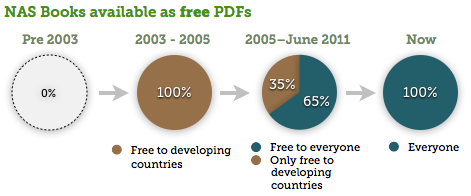Community Embraces New Word Game at Mid-Year Play Day This past Sunday, families at Takoma Park’s Seventh Annual Mid-Year Play Day had the opportunity to experience OtherWordly for the first time. Our educational language game drew curious children and parents to our table throughout the afternoon. Words in Space Several children gathered around our iPads […]
Read moreTag: free
 Online education can have a real impact in the developing world. Last week, we needed to hire a programmer for a small freelance job. To my surprise, several candidates advertised they had completed programming MOOCs. These were young programmers in their 20’s, in countries like Pakistan and Thailand, who lacked college-level coursework, but are trying to launch freelancing careers based on online courses.
Online education can have a real impact in the developing world. Last week, we needed to hire a programmer for a small freelance job. To my surprise, several candidates advertised they had completed programming MOOCs. These were young programmers in their 20’s, in countries like Pakistan and Thailand, who lacked college-level coursework, but are trying to launch freelancing careers based on online courses.
Online courses and MOOCs may be a poor substitute for in-person learning with a charismatic teacher, but they are light-years better than nothing, and are particularly relevant for higher education and specific skills, when students are self-motivated. (more…)
What is fan fiction?
June 5th, 2013 by IDEA
 Who owns art and culture? Does it belong to the artist? The legal property owner? Or the society that loves and appreciates it? Traditionally, old art is considered public, and new art is copyrighted. Anyone can write a new twist on Romeo and Juliet, or mashup the Mona Lisa with a mustache. But what if Harry Potter opened a lemonade stand? Or Luke Skywalker had a twin bother? (more…)
Who owns art and culture? Does it belong to the artist? The legal property owner? Or the society that loves and appreciates it? Traditionally, old art is considered public, and new art is copyrighted. Anyone can write a new twist on Romeo and Juliet, or mashup the Mona Lisa with a mustache. But what if Harry Potter opened a lemonade stand? Or Luke Skywalker had a twin bother? (more…)
 Online courses with very large enrollments have rapidly matured in the last two years, led largely by experiments outside mainstream academia by Coursera, Udacity and edX. Ambitious educators, technologists, and funders have created courses on diverse topics, and over five million students worldwide have registered for classes. And 3% have completed the courses. What can we learn? (more…)
Online courses with very large enrollments have rapidly matured in the last two years, led largely by experiments outside mainstream academia by Coursera, Udacity and edX. Ambitious educators, technologists, and funders have created courses on diverse topics, and over five million students worldwide have registered for classes. And 3% have completed the courses. What can we learn? (more…)
 Imploded by the same forces that have disrupted the broader publishing industry, the dictionary business struggles to get a grip on the online/mobile world. “Our research tells us that most people today get their reference information via their computer, tablet, or phone” said Stephen Bullon, Macmillan Education’s Publisher for Dictionaries, “and the message is clear and unambiguous: the future of the dictionary is digital.” (more…)
Imploded by the same forces that have disrupted the broader publishing industry, the dictionary business struggles to get a grip on the online/mobile world. “Our research tells us that most people today get their reference information via their computer, tablet, or phone” said Stephen Bullon, Macmillan Education’s Publisher for Dictionaries, “and the message is clear and unambiguous: the future of the dictionary is digital.” (more…)
 A Hopi doll with painted headdress springs to life, spinning under my finger tips on a new iPad app from the University of Virginia Art Museum (UVaM).
A Hopi doll with painted headdress springs to life, spinning under my finger tips on a new iPad app from the University of Virginia Art Museum (UVaM).
The delightful app presents 19 different objects in 3D, to spin and zoom, providing an immediacy that rivals seeing an object in real life. In fact, it’s better in many ways than peering at an object through a protective case because the objects can be spun through a full 360°, view under bright lighting, at high resolution.
Personal exploration
The free app presents the mobile visitor with a grid of objects (below, left):

 When deciding what software to use for a project, how do you decide on open source vs. proprietary software? For example, in prior post on social networking software, there are some free options (assuming you have a developers on hand), and some expensive options. Here’s a summary of the typical pros and cons for Open Source. (more…)
When deciding what software to use for a project, how do you decide on open source vs. proprietary software? For example, in prior post on social networking software, there are some free options (assuming you have a developers on hand), and some expensive options. Here’s a summary of the typical pros and cons for Open Source. (more…)
![]() All publications from the National Academies Press (NAP) are now available for free as PDFs. NAP is the publishing arm of the National Academies, and publishes 200+ books a year on topics in science, engineering, and health.
All publications from the National Academies Press (NAP) are now available for free as PDFs. NAP is the publishing arm of the National Academies, and publishes 200+ books a year on topics in science, engineering, and health.
Making the PDFs free is the culmination of a decade of research and sales modeling on how to finance a nimble publishing house with paid print books, with enough spare revenue to allow free release of electronic books. Here’s the evolution:


